<< Previous | Displaying results 6731-6740 of 6768 for "" | Next >>
Pastor Martin Niemöller speaks to reporters after his release from a concentration camp. Germany, 1945.
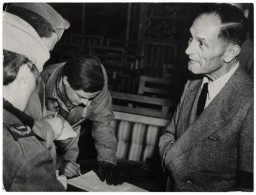
The Kloster Indersdorft displaced persons camp opened in July 1945. By mid-September, 1945, 192 boys and girls from thirteen nations, including 49 Jewish children, were sheltered at Kloster Indersdorf, more than double what had been anticipated. Over the next year, the numbers increased to over 300. Five hours each day were allocated to education. Teachers were drawn from the staff as well as the local community. Many of the children had few or no literacy skills; they also benefitted from art, music,…
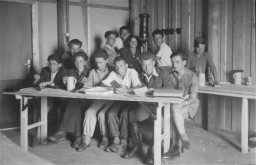
Identification card issued to Oskar Russ in the Feldafing displaced persons' camp. Oskar Russ was born in Poland in 1907. During the Holocaust, he was imprisoned in the Dachau concentration camp. After liberation, he was in the Feldafing displaced persons camp before immigrating in 1947 to the United States with his wife (whom he had married in Feldafing).
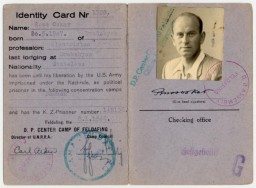
Portrait of Rabbi Shimon Hoberband, who was involved in the activities of Emanuel Ringelblum's Oneg Shabbat archives in the Warsaw ghetto.
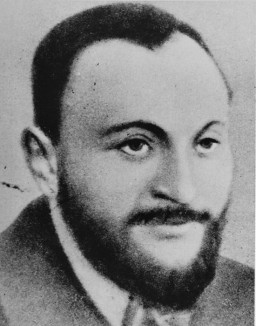
Spectators cheer passing SA formations during a Reichsparteitag (Reich Party Day) parade in Nuremberg.
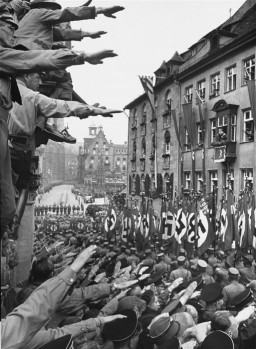
A technician determines the racial makeup of a young woman by the color of her hair.
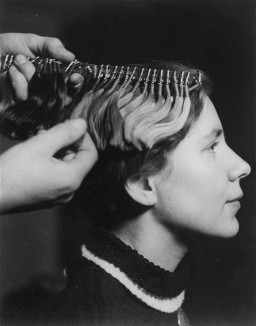
Visitors view the "Degenerate Art" exhibition (Entartete Kunst) at the Munich Hofgarten in July 1937. Works by Lovis Corinth and Franz Marc are visible, among others.
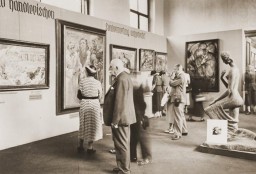
Propaganda slide which contrasts a person of mixed race (left) with a healthy "Aryan" youth (right).
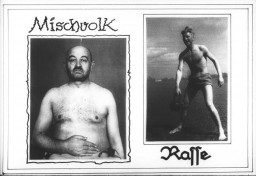
Prisoners march in the courtyard of the Gestapo headquarters in Nuremberg. The original caption to the photograph reads: "The courtyard of the Gestapo headquarters, Nurnberg. These appear to be Frenchmen taken to Germany as slave laborers".
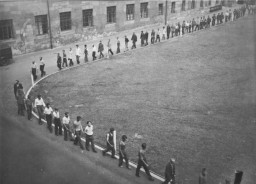
Group portrait of women and children standing outside in Warsaw before the war. Warsaw, Poland, ca. 1938.
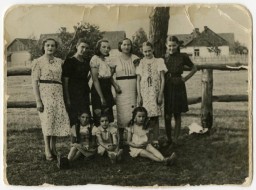
We would like to thank Crown Family Philanthropies, Abe and Ida Cooper Foundation, the Claims Conference, EVZ, and BMF for supporting the ongoing work to create content and resources for the Holocaust Encyclopedia. View the list of donor acknowledgement.